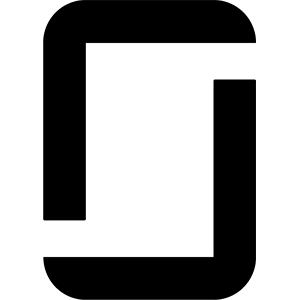
Every company needs accessibility experts, but few leaders know how to navigate the hiring process. Despite rising pressure to embrace accessibility, over 94% of websites still have detectable errors. And digital products of all forms remain inaccessible to people with disabilities.
The issue isn’t lack of care; it’s lack of expertise. Teams don’t know where to find accessibility talent, who to hire, or how to go about hiring them. Roles are misdefined. Processes are inaccessible. And the best candidates are often overlooked or never even apply.
While automation and outsourcing can help, they’re not substitutes for in-house experts who understand your products, users and processes. Internal professionals drive consistency, accelerate collaboration and keep accessibility integrated throughout design and development. Here’s how inclusive teams hire them.
1. Define Realistic Roles
One person can’t do everything. It sounds obvious, but many job descriptions still ask for someone who can lead strategy, fix code, train teams, test with assistive tech, and write documentation. That person doesn’t exist.
Define what success looks like in this role and what it doesn’t. Start by asking: What’s the real gap on our team? Do we need someone to test, build, teach, or lead? Set expectations, and get specific.
While some teams ask for too much, other teams think they need one professional but truly require another. If you only have room for a few hires, be sure they’re the right ones, and give them the support they need to succeed.
2. Build a Hiring Team That Gets It
If your hiring team doesn’t understand accessibility, they won’t hire the right people.
Train your recruiters and choose your interviewers wisely. Make sure they understand the basics—roles, skills, terminology—and can avoid common pitfalls like ableist assumptions or rigid checklists.
Better yet, bring accessibility experts into the hiring process. Peer interviews can be incredibly valuable, especially when hiring for technical or specialized roles.
3. Prioritize Cultural Fit and Lived Experience
Certifications matter. But they’re not everything.
Some of the most impactful accessibility professionals don’t have formal certs. But they do have lived experience, deep empathy, and a track record of solving real problems. Those qualities are just as important.
Ask yourself: Does this person understand our users? Can they collaborate across teams? Do they care about the mission? Prioritize people who bring insight, perspective, and passion — not just credentials.
4. Look in the Right Places
Accessibility is a niche within a niche. You won’t always find top candidates on the usual job boards.
Expand your search. Post on disability-inclusive platforms. Partner with organizations that specialize in hiring digital accessibility talent and professionals with disabilities. Tap into accessibility networks and communities.
And don’t overlook unconventional resumes. Many accessibility experts took nontraditional paths to get where they are. Beyond titles and timelines, look for transferable skills and real-world impact.
5. Embrace Disability Inclusion
The fact is that if your hiring process isn’t accessible, the best candidates might never even apply.
Spell out your commitment to disability inclusion in every job post. Make sure your application systems are usable with screen readers and keyboard navigation. Ask candidates upfront if they need accommodations. And be ready to provide them without friction or delay.
Don’t wait for applicants to flag issues. The most inclusive companies are proactive, not reactive. Show that you value accessibility not just in your products, but in your process.
6. Be Transparent and Applicant-Centric
Accessibility professionals are evaluating you, too.
Be upfront about your company’s accessibility journey. What’s working? What still needs work? Where are you hoping to grow?
Also, communicate clearly about your hiring process. Share timelines. Avoid endless interview loops. Cut unnecessary assessments. Transparency builds trust and keeps great candidates engaged.
7. Show the Impact They’ll Make
Most accessibility experts aren’t just looking for a paycheck. They want to make a difference.
If you want to close top candidates, show them the impact they’ll have. Will they shape strategy? Improve products? Influence culture? Let them see how their work will matter and how your company will support them along the way.
This isn’t just a job. It’s a chance to create real change.
Final Thoughts
Hiring digital accessibility talent isn’t just about writing a good job description. It takes intention. It takes empathy. And it takes a commitment to building a team that reflects the users you serve. So be clear. Be inclusive. Be transparent. And don’t just hire for accessibility; hire with accessibility in mind.
The solutions to get accessible.
The talent to stay accessible.
Onward Accessibility, a division of Onward Search, is the only provider to empower companies with both digital accessibility solutions and talent. From auditing assets to hiring experts, we can support you at every stage of your journey.
Connect with Certified Experts
Fill out the following form, and we’ll be in touch within 24 hours to support you.


